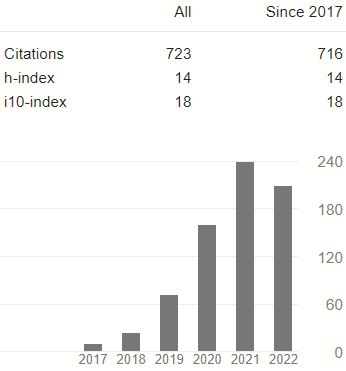PENERAPAN RISK BASED INTERNAL AUDITING: STUDI KASUS PADA PLAN INTERNATIONAL INDONESIA
DOI:
https://doi.org/10.25170/jara.v12i1.60Keywords:
risk register, risk maturity, risk managed, audit strategy, risk managementAbstract
The purposes of this research is to assess risk maturity of Plan International Indonesia to determine whether Plan International Indonesia could implement the Risk Based Internal Auditing (RBIA) approach. Methodology which is used is descriptive methodology with qualitative approach. The Institute of Internal Auditors (2014) suggests the factors that can be taken into account when doing the assessment of risk maturity, and these factors are used for doing the assessment on this research. The result of this research shows the risk maturity of Plan International Indonesia is risk managed stage which mean Plan International Indonesia is ready to implement the RBIA approach. Risk managed also has the meaning that risk register of Plan International Indonesia can be used as the base for the audit planning in this approach. The audit strategy that will be used are management view of risk drives audit plan, assurance being given for the risk management and mitigation, and consulting service to improve risk management. Audit internal team needs to improve their capacity before implementation of this approach and also communication and socialization must be done to entire organization.
References
Griffiths, David. (2015, July 8). Risk based internal auditing-An introduction (Version 4.4). July 19, 2016. www.internalaudit.biz.
Harrington, Larry dan Arthur Piper. (2015). Driving success in a changing world: 10 imperatives for internal audit. The Global Internal Audit Common Body of Knowledge. The IIA Research Foundation. September 3, 2016. www.theiia.org/goto/CBOK.
Ibrahim. (2015). Metodologi penelitian kualitatif. Bandung: Alfabeta.
Pickett, K.H. Spencer. (2005a). The essential hand book of internal auditing. John W, Wiley.
Pickett, K.H. Spencer. (2005b). Auditing the risk management process. John Wiley & Sons, New Jersey.
Plan International. (2016a). How we keep our funds save. 15 Agust 2016. https://plan-international.org/finance/how-we-keep-our-funds-safe.
Plan International. (2014a). Managing risk in Plan-risk management toolkit. Global Risk Management Team.
Plan International. (2014b). Managing risk in Plan-quarterly risk reporting: Quick guide for risk owners and office approvers. Global Risk Management Team.
Plan International. (2013). Plan policy-risk management.
Plan International Indonesia. (2014a). Job description compliance manager.
Plan International Indonesia. (2010). Job description risk management officer.
Richards, David A., Barry C. Melancon dan James D. Ratley. (2007). Managing the business risk of fraud: A practical guide. January 1, 2017. http://www.theiia.org/media/files/fraud-white-paper/fraud%20paper.pdf.
Sawyer, L.B. (2012). Sawyer’s guide for internal auditors. The Institute of Internal Auditors Research Foundation.
The Institute of Internal Auditors (IIA). (2013). Model internal audit activity charter.
The Institute of Internal Auditors (IIA). (2013). International standards for the professional practice of internal auditing.
The Institute of Internal Auditors (IIA). (2014). Risk based internal auditing- chartered institute of internal auditor.
The Institute of Internal Auditors (IIA). (2015). International professional practice framework..
Downloads
Published
Issue
Section
License
Authors who publish with this journal agree to the following terms:
- Authors retain copyright and grant the journal right of first publication with the work simultaneously licensed under a Creative Commons Attribution-ShareAlike 4.0 International License that allows others to share the work with an acknowledgment of the work's authorship and initial publication in this journal.
- Authors are able to enter into separate, additional contractual arrangements for the non-exclusive distribution of the journal's published version of the work (e.g., post it to an institutional repository or publish it in a book), with an acknowledgment of its initial publication in this journal.
- Authors are permitted and encouraged to post their work online (e.g., in institutional repositories or on their website) prior to and during the submission process, as it can lead to productive exchanges, as well as earlier and greater citation of published work.














